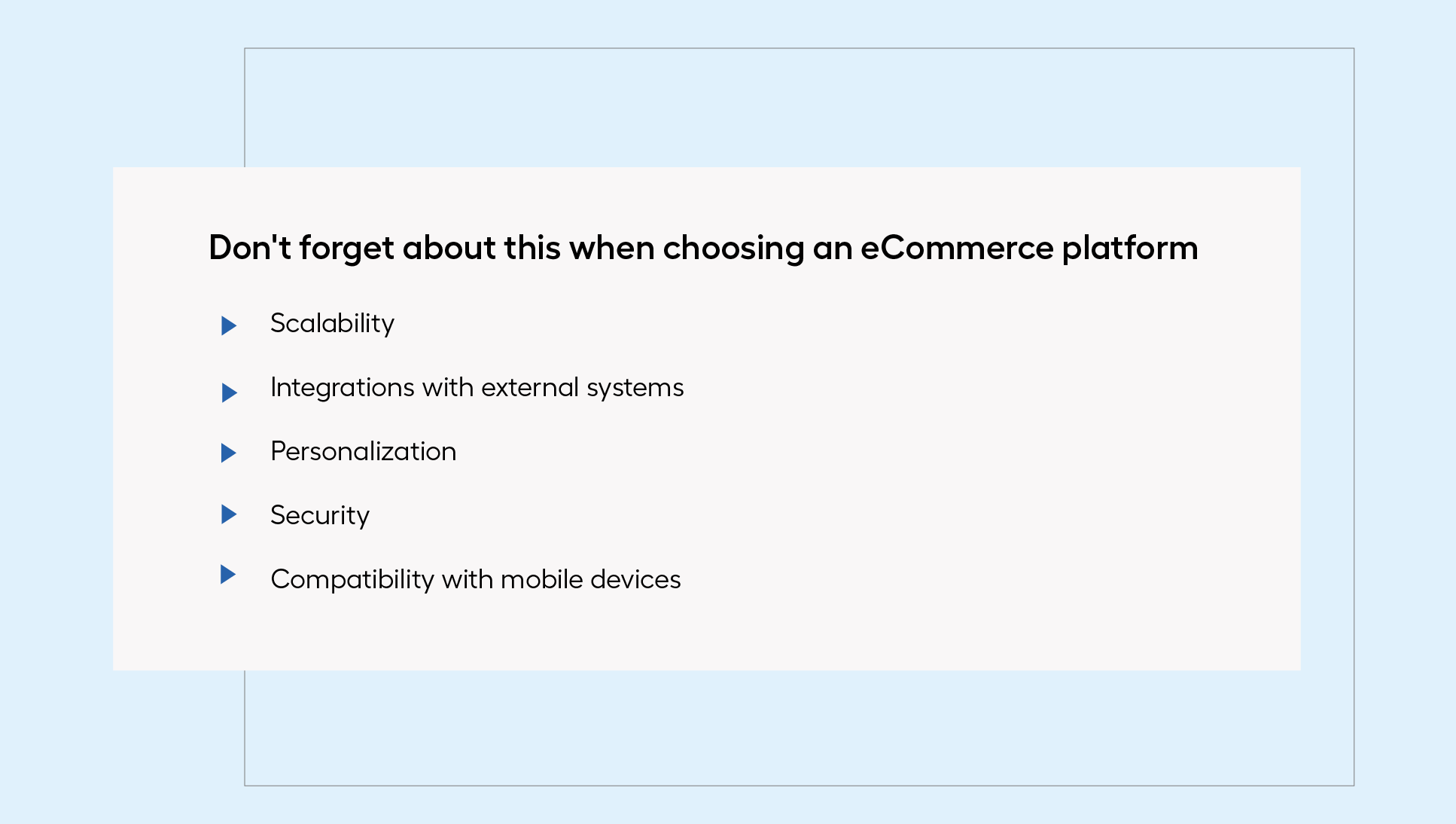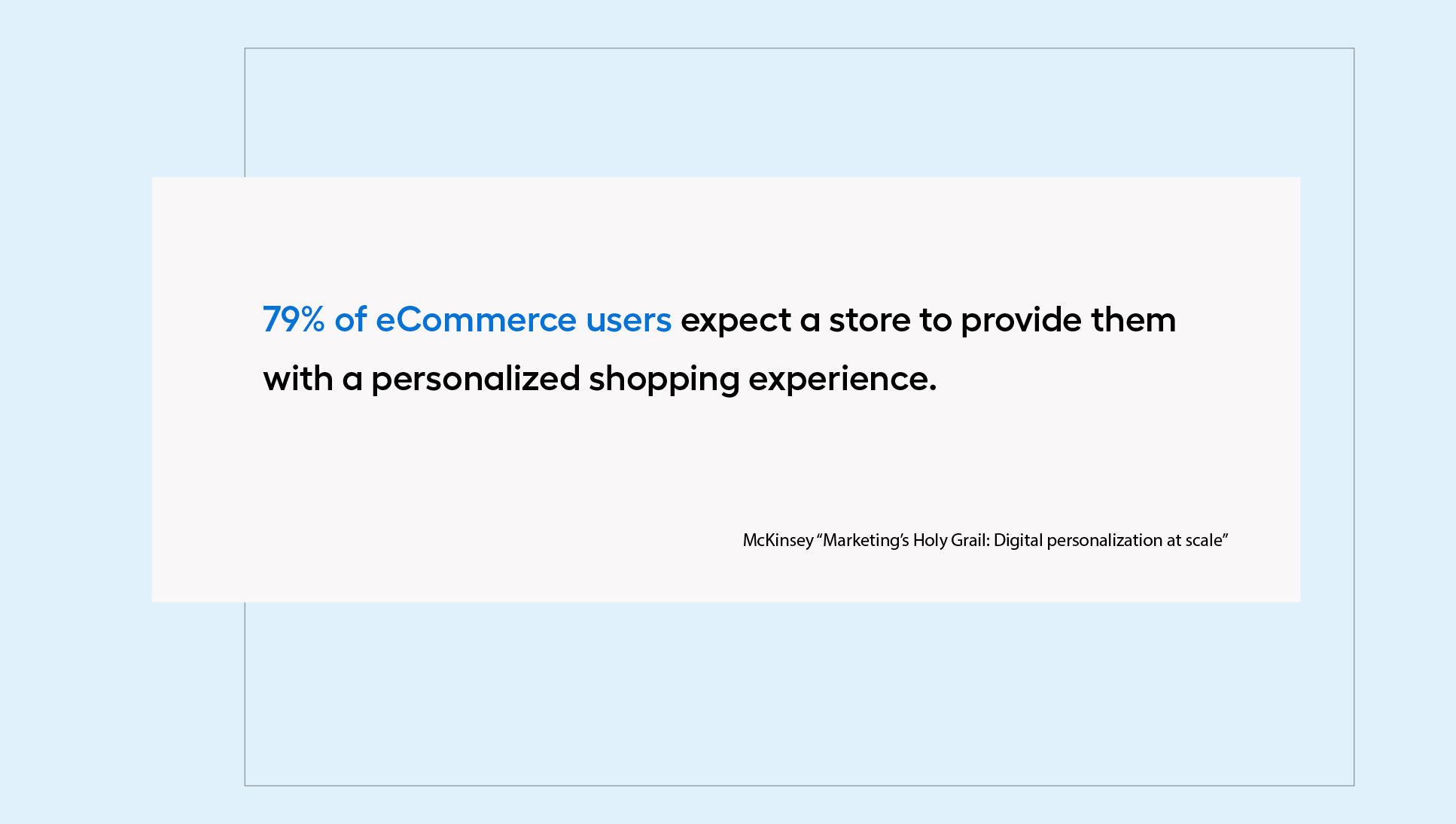The right choice of platform is a key step in achieving success in online business. However, to get the desired results, it is necessary to make this decision with full understanding, taking into account many factors. Depending on your industry, the complexity of your offerings or the specifics of your customers, your platform preferences can change dramatically. For some entrepreneurs, the best way will be to build a business on a platform based on a SaaS model. Others will choose open-source solutions. Regardless of individual needs, however, there are a few areas that are worth paying attention to regardless of the type of e-shop.
In this article, we'll look at 5 core reasons why choosing an eCommerce platform matters. Find out what to look for when choosing an engine for your online store.
What to look for when choosing an eCommerce platform?
Will the chosen platform manage to cope with the growing online traffic? Will it enable effective management of the various stages of sales? Will it satisfy customers' needs and help build their trust? These are questions that may arise when choosing a sales platform from among the options available on the market.
The right platform will not only address the above doubts, but also direct new opportunities and possibilities for growth. Thus, choosing a platform is not just a technical issue, but also a strategic investment that can allow you to grow rapidly, increase operational efficiency and create exceptional customer experiences. Find out what to look for when making this decision.

A look at the future - scalability
Dynamic growth of online stores is not only a goal of many entrepreneurs, but also a reality. According to a PWC report, the Polish eCommerce market will grow annually by about 10%, reaching a value of almost 190 billion zlotys in 2027 (in 2023 this value is 124 billion). With the growing popularity of eCommerce, customers' expectations and needs are also changing. If you care about effective sales in the long term, your online store should be ready to flexibly adapt to these changes. For this reason, a key factor you should pay attention to when choosing a platform is scalability.
The scalability of an online store is the ability of the software to operate smoothly under the conditions of ever-increasing number of visitors and data without putting a strain on its operating speed (and negatively affecting loading speed). In practice, this means that the platform should seamlessly cope with the increasing number of products on offer, orders placed and increased traffic on the site.
Scalability becomes even more important in the context of the growing trend of cross-border commerce, i.e. selling abroad. An eCommerce platform with high scalability makes it easy to adapt to the specifics of different markets, support different currencies and languages, and meet the specific cultural or legal requirements of each region.
Companies that invest in scalability are better prepared to meet the challenges of not only growing popularity domestically, but also in the global market. A properly prepared eCommerce platform allows for dynamic expansion without sacrificing efficiency or compromising customer service.
Effective business management - external integrations
Choosing the right eCommerce platform is not only a matter of adjusting to changing market conditions, but also the ability to comprehensively manage the entire business ecosystem. The realization of this goal becomes possible through integration with external systems. Moreover, the ability to integrate with external systems supports not only business processes. It also contributes to optimizing operating costs and minimizing the need to manually handle multiple tools simultaneously.
As part of additional integrations, it is worth noting whether the platform connects with systems to, among other things:
- warehouse management (WMS) - automate the tracking and management of inventory, resulting in better inventory control and faster delivery processes.
- enterprise resource planning (ERP) - enable coordination of various operational aspects, such as accounting, order management and data analysis.
- content management (CMS) - enable dynamic updating of website content, which supports personalization of the customer experience and reduction of errors.
- customer relationship management (CRM) - collect and analyze customer data, enabling more targeted marketing strategies and increasing customer loyalty.
As a result, integration with external systems is becoming one of the key elements of successful e-business management, supporting its growth, optimizing costs and improving the customer experience.
In line with customer needs - personalization
How to achieve a competitive advantage in the changing reality of eCommerce? Personalization can help. Personalized shopping experiences not only satisfy individual customer preferences, but also translate into higher levels of engagement and increased customer loyalty. For this reason, it is worth paying attention to whether and to what extent the platform offers the opportunity:
- customization of content on the product card,
- product recommendations (e.g., up- and cross-selling),
- designing the interface according to the purchase path,
- analyzing purchase data, preferences and browsing history,
- handling personalized offers, discount coupons or loyalty programs.

Personalization is not only about adapting to customer expectations, but also about helping to build lasting relationships with customers by providing compelling shopping experiences. This is confirmed by a McKinsey study, according to which: "79% of users say they will only engage with an offer if the store's website provides a personalized experience."
More than trust - platform security
In today's digital age, concern for website security is a top priority. Why? High requirements in this regard are not only set by strict regulations (such as the European Omnibus Directive or GDPR data protection regulations). Security is also crucial for building customer trust. This is confirmed by the report called: "Dekada polskiego e-commerce" prepared by the Chamber of Digital Economy, in which 32% of respondents indicated trust as the most important factor when choosing an online store.
How do you gain confidence that customers will feel safe placing an order in your e-store?
The primary factor affecting users' sense of security is the protection of data (such as credit card numbers) - it is most often sensitive information that becomes the target of hacking attacks. When deciding which software to choose, it is worth paying special attention to whether the platform offers comprehensive tools, such as a firewall, protection against DDoS attacks, or threat detection systems. It is these elements that make up a solid security infrastructure.
However, you must also keep in mind that maintaining a high level of security is not a one-time effort. It is important that the chosen platform regularly updates its security, adapting its strategy to the evolving activities of cybercriminals (who are using increasingly sophisticated techniques). Being flexible in your approach to security allows you to respond more effectively to new challenges and maintain protection against threats.
Accessibility on any device - mobile first approach
79 - this is the percentage of customers who placed orders using smartphones in 2023 (according to Gemius Report). Such a result makes mobile devices the most frequently chosen tools for e-shopping. Failure to adapt the platform to the needs of these users is a mistake that could result in the loss of numerous customers. Therefore, it is crucial to deliver a consistent and seamless shopping experience, regardless of the device used.
Mobile users' expectations mainly focus on a fast, intuitive and aesthetically pleasing interface that allows them to freely browse offers and finalize transactions on any device. What should a platform tailored to their needs contain?
There are a number of functionalities that are worth paying special attention to. The main thing is to take care of responsiveness. However, it will also be important to take care of details such as:
- page loading speed,
- distance of individual elements from each other,
- the possibility of operating with fingers (swiping or scaling the view with fingers),
- modern payment options (e.g. electronic wallets),
- shortened purchase path.
When adapting a platform for mobile devices, it is also worth paying attention to whether it allows the use of PWA (Progressive Web App) technology. Its use combines the advantages of mobile applications with the benefits characteristic of web browsers. Among other things, it enables the use of geolocation, push notifications and offline work (for pre-loaded content).
Choosing an eCommerce platform - make a good and informed decision
Deciding on an eCommerce platform is not just a matter of technology, but more importantly a strategic move that can determine the future success of your online store. The choice depends on the individual characteristics of your business, but aspects such as scalability, personalization capabilities and security are fundamental areas that you should always consider in your decision-making process. Remember that a thorough understanding of your own business needs and choosing a platform that effectively handles them can be a key step toward long-term online success. If you're still wondering which solution to choose - we'd be happy to help. Write to us!



